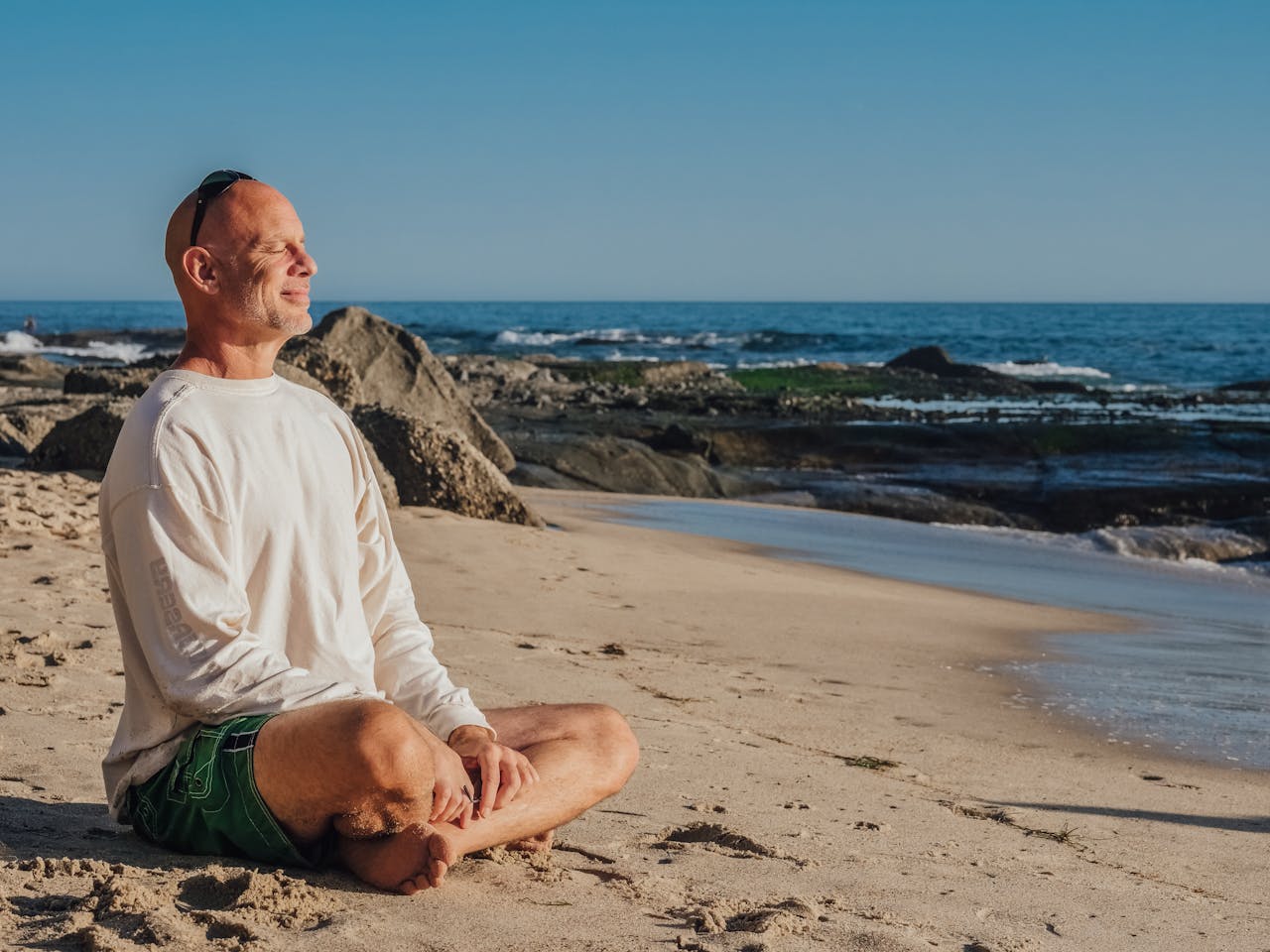It is generally believed that friends make life better. They understand us, support us, and give us a sense of belonging.
But not everyone is lucky to have a close-knit social circle. Some people find themselves with a list of acquaintances they can chat with but no one they can really count on. Others find themselves completely alone with no friends, and it can happen at any stage of life.
You may have grown apart from people who were your friends or never known how to form close relationships with other people. And let’s face it: making friends as an adult isn’t easy.
So is it okay to have no friends? The answer is yes. It is normal and okay to have no friends. But that doesn’t mean you should never consider trying to meet people. While having no friends doesn’t mean there’s anything wrong with you, there are benefits to friendship that are worth pursuing if you’re interested.
But first, let’s delve into the surprising data about not having friends. You’re not alone.
Is It Common to Have No Friends?
If you log on to social media, it seems like everyone has a constant group of close friends around them. Parties, weddings, anniversaries, you name it. There are always people commenting on each other’s posts and rooting each other. You can get the feeling that you’re the only person left on the planet who doesn’t have friends. But you’re far from being isolated.
According to a survey, 12% of American adults reported having no close friends. Further statistics by the Pew Research Center reveal that 53% of Americans report having one to four close friends.
Not having close friends isn’t just common; it’s a trend. Younger people in Gen Z aren’t forming close relationships like prior generations, which will ultimately lead to more adults in their late-20s, 30s, and beyond having no friends.
Reasons Why People Don’t Have Any Friends
Not having any friends doesn’t mean you did something wrong. There are many reasons why someone may not have any friends, such as:
1. Growing Apart
You might have had friends in high school or college and gradually lost touch over time. Even a routine check-in or comment on social media doesn’t equate to having a real friendship anymore. It can be painful to watch people you were once close to move on, especially if you feel left behind.
But growing apart from old friends is a normal and natural part of life, especially when you met during the earlier periods of development.
2. Life Changes
People who divorce often find their social circles dramatically changing. People you may have once hung out with frequently with your partner might suddenly seem less available. Moving to a new city or state can make it harder to maintain old connections, leaving you with fewer friends to call on.
3. Social Anxiety
If you’ve struggled with social anxiety, then you know how hard it is to approach people, let alone engage with others in group settings. Social anxiety can stop you from making the first move and from getting close to other people. Luckily, this is an anxiety disorder highly responsive to therapy.
4. Depression
Depression causes people to socially withdraw and sometimes push others away. It can also stop you from taking steps to make friends if you don’t have any. In addition to zapping your motivation, depression also lowers your self-esteem and can make you falsely believe no one wants to be your friend.
Getting professional help for depression could help you start to feel more optimistic and social.
Do You Need to Have Friends? Benefits of Friendship
You don’t need friends to live, but having them does help. This is because humans are social creatures by nature. Even introverts benefit from close relationships. Loneliness is associated with negative mental health and even a shorter lifespan.
Friendship offers many benefits, including:
- A sense of acceptance and belonging
- Increased self-esteem
- Mental and emotional support
- Understanding
- Reduced stress and anxiety
- Help navigating life’s challenges
A study found that high-quality friendships lead to greater feelings of support and intimacy. This can reduce stress, lower anxiety, and make it easier to maintain balance in life. Having other people to rely on takes some of the stress off our shoulders.

Is It Okay to Have No Friends?
It’s OK to have no friends. 12% of American adults reported having no close friends. Having no friends doesn’t mean there’s anything wrong with you. The key is to consider the impact it’s having on your life.
If having no friends does not have any negative impact on you, then it is ok. However, if having no friends is stopping you from leading a life as vibrant and full as you want, then it could be beneficial to make changes.
Here are some potential benefits of having no friends:
- Greater independence and self-reliance
- Increased time for personal interests and hobbies
- Reduced social conflicts and drama
- Enhanced focus on career and personal goals
- Deeper self-discovery and understanding
But there might also be drawbacks.
Not having any friends can make you feel constantly lonely and make it harder to go through life. You may be prone to feeling strong bouts of loneliness and even depression due to social isolation. Most people need support and a sense of connection. Even if you don’t get lonely often, having friends could enrich your life and make you feel better about yourself.
Is Having No Friends Hurting Me?
To identify if having no friends is hurting you, you can begin by asking yourself a few questions. How does having no friends make you feel? Does lacking social support and companionship make you feel bad about yourself?
If having no friends does not have any negative impact on you, then it is ok. If having no friends is stopping you from leading a life as vibrant and full as you want, then it could be hurting you, and you should think about making changes.
For many people, low self-esteem and not having any friends go hand-in-hand. They feel like no one wants to be their friend, which makes them feel bad. Feeling bad about themselves also makes them less likely to engage with others, so they are unable to make any friends, which would help boost their self-esteem.
Finding friends is challenging, and it’s normal to struggle with loneliness from time to time. Even people who have close relationships feel lonely sometimes.
Do I Need Professional Help?
Faced with difficulties, you might want to seek help. Not having any friends can make life harder, and it may contribute to feelings of loneliness, depression, and anxiety. You may also struggle to make friends because of underlying mental health conditions or past experiences, like a history of bullying in childhood.
If this is the case for you, talking to a therapist could help.
Another reason that therapy may be helpful is that it can teach you skills to make friends more easily. Life doesn’t come with a guide, so it’s completely natural to struggle to make friends. Not everyone is super social or outgoing, and they can benefit from learning communication skills that help them connect with others.
How to Tell if You Need a Therapist for Having No Friends?
The biggest question to ask yourself is, “Does not having any friends make me feel my life is worse?” If you want friends but can’t make them, struggle to keep them, or are afraid even to try meeting new people, you may benefit from therapy. But if this is not the case for you, then you don’t need to talk to a therapist.
For those who might need professional help, struggling with loneliness and depression from not having friends are good reasons to seek therapy. Even though your therapist can’t teach you how to make friends fast, they can offer support and guidance to help you build a rich and meaningful life while you try to meet others.
Reaching out for help can be hard, but it’s worth it. Asking a therapist’s advice could make the difference between spending another year totally alone and getting out into the world and meeting new people. Getting help for having no friends is a great step toward building confidence, overcoming loneliness, and finding the right people to enrich your life.
Read More
All About Afternoon Depression
How to Control Anger Immediately? A Step-by-Step Guide
What Is an Anxiety Pen? Does It Work?
What Is Positive Psychology (In Plain English) and How to Apply It?





